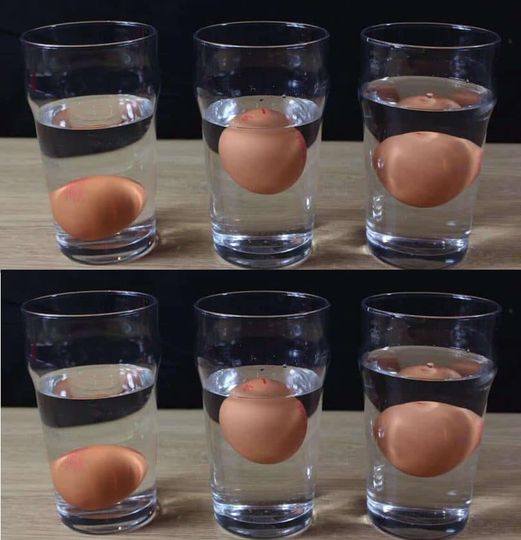However, eggs can be stored in the refrigerator for one month past the recommended use-by date, which is 58 days after the day they were laid, if the shells are not cracked or broken. Storing food in optimal conditions helps maintain its freshness, avoid mold and actively fight against food waste.
Compliance with the cold chain and deadlines is necessary to avoid pathogenic organisms that pose a health risk. Thus, putting eggs in the refrigerator helps preserve their taste and nutritional qualities and prevents the growth of bacteria.
However, you should definitely not wash eggs that are not going to be eaten immediately, as this risks causing them to lose the protective film that the hen leaves on them. But if the dates are not on the packaging, it is necessary to find other ways to find out if they are expired.
2. Smell the egg
Like fresh products such as cheeses, desserts, crème fraîche, or even yogurts, eggs can have a suspicious smell once the deadline has passed.
So, if you notice that the egg is past the expiration date and you want to keep the product for later consumption, start by smelling it.
Expired food often has an unpleasant odor and should not be eaten. They may have lost their vitamins and have an altered taste.
In addition, perishable food products have a limited shelf life and can be dangerous for your health if the expiration dates are not respected. Expired eggs, whether cooked or raw, may give off a distinctive odor.
If you can’t decipher the label and the smell isn’t enough to tell you something, you can crack the egg into a bowl or salad bowl and smell it, says registered dietitian Taylor Jones. And if the smell puts you off, throw the egg away and wash the container with hot water.
If the smell seems normal to you, you should consume the egg quickly by preparing an omelette for example.Your eyes can also help you identify whether an egg is expired or edible.
Before consuming a product, it is best to visually inspect it to avoid any risk. According to the specialist, it is necessary to check whether the shell is not powdery, viscous or cracked.
Any questionable appearance may reveal the presence of mold. Additionally, if the shell is dry and appears to be in good condition, crack the egg into a bowl and identify any suspicious discoloration.
